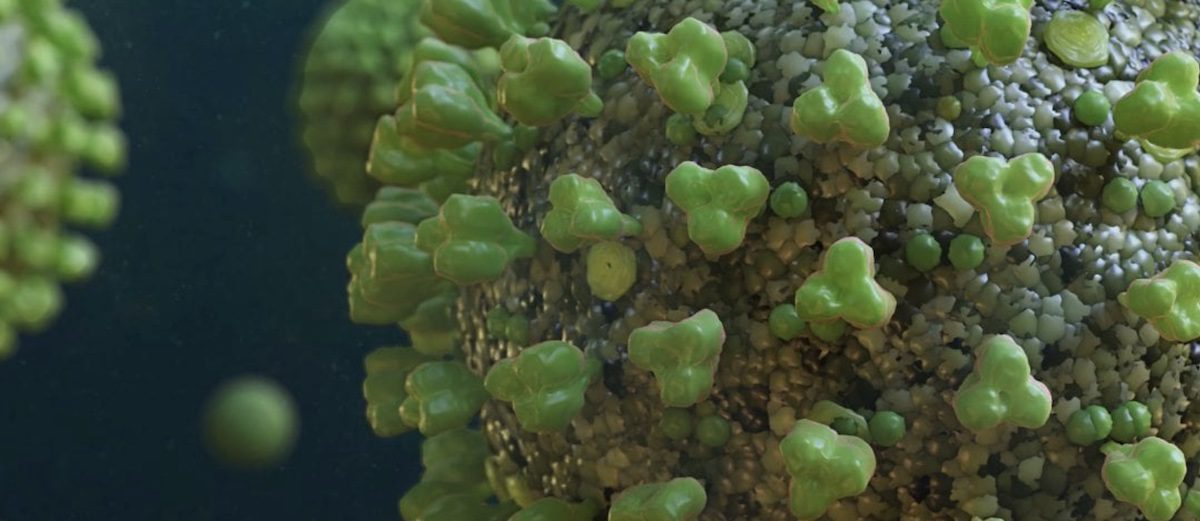COVID-19 IS A “DAMP PLAGUE”
|

As of today, there have been over 80,000 cases of coronavirus (COVID-19) diagnosed in China. A large percentage of these cases have been co-managed by practitioners of conventional and traditional Chinese medicine (TCM). This large volume of cases has given practitioners of TCM clear insight into what makes COVID-19 different from a run-of-the-mill cold or flu virus and also gives us useful insight about how COVID-19 can be prevented and treated.
HOW IS COVID-19 DIFFERENT THAN A TYPICAL RESPIRATORY VIRUS?
According to TCM, the typical cold or flu virus is an “invasion of external wind”. Although a detailed explanation of the physiology of wind invasion is beyond the scope of this article, the gist is that external wind invasions generally do not penetrate beyond the superficial level of the body and, unless a person suffers from some type of significant compromise of the immune system, the body is able to shake the pathogen off quickly and without significant or lasting damage.
In contrast, COVID-19 is an “invasion of damp”. This means that the virus tends to penetrate to a deeper level and affect the internal organs of virtually everyone who contracts it, at least to some extent. This is consistent with recent reports that even asymptomatic COVID-19 patients show CT evidence of pneumonia. To complicate matters, many Americans already suffer from an accumulation of dampness which means that, at least in theory, the average American will serve as an ideal host for this particular pathogen.
WHAT DOES THIS MEAN FOR YOU?
Of course the first line of defense against COVID-19 is what you have been reading and hearing everywhere: wash your hands, don’t touch your face, and avoid sick people. In addition, my family and I are optimizing vitamin D and zinc status by taking supplements.
If you have signs and symptoms of damp accumulation as described here, there are additional steps you should take to make yourself a less welcoming host to COVID-19. Specifically you should:
- Avoid sugar, dairy, and gluten
- Minimize foods and drinks that are cold in temperature (iced drinks, ice cream, smoothies, etc.) or cold in energy (salads, fruits, etc.)
- Avoid foods to which you have an allergy or sensitivity
- Emphasize cooked, easy to digest, and hydrating meals such as soups, stews, and wet breakfasts
- Stop short of eating until you are completely full and chew your food thoroughly
- Engage in gentle physical activity. Rebounding on a small trampoline is especially beneficial because it promotes lymph circulation (lymph stagnation and damp accumulation form a vicious cycle in which damp accumulation causes lymph stagnation and lymph stagnation causes damp accumulation)
- Use a sauna or participate in an activity that induces copious sweat (for example hot yoga) on at least a weekly basis
- Dry brush daily
- Consult with a board-certified herbalist (look for the Dipl. OM or Dipl. CH designation) for a customized herbal prescription to resolve dampness
INSIGHT ABOUT THE DAMP NATURE OF COVID-19 MAY TELL US SOMETHING USEFUL ABOUT THE EARLY SIGNS OF ILLNESS
According to TCM doctors on the frontlines in China, many COVID-19-infected patients show early indications of illness that are not being talked about by Western medical providers or by the US media. These early signs and symptoms of infection include:
- Fatigue/lethargy
- Poor appetite, mild nausea, loose stool
- Mild tightness in the chest
- Thick tongue coat
- Dry throat
It is not until later in the course of the illness that patients develop the fever, cough, and shortness of breath that Western health authorities and media are telling us to look for. It may be useful to keep these early signs and symptoms in mind and take proactive steps if you experience them, including stepping up self care and avoiding contact with vulnerable populations.
BE CAUTIOUS IN THE USE OF “ANTI-MICROBIAL” HERBS AND DIETARY SUPPLEMENTS
Many herbs or dietary supplements that are considered anti-microbial can actually have a tendency to make pre-existing damp accumulation worse, particularly if they are used in high doses, over a long period of time, and/or in patients with significant pre-existing dampness. Substances that potentially fall into this category include echinacea, goldenseal, grapefruit seed extract, colloidal silver, ban lan gan, yin chiao san, and gan mao ling, among many others. This is an excellent reason to consult with a board-certified herbalist (look for the Dipl. OM or Dipl. CH designation) for individualized care rather than self-prescribing botanical medicines.
To learn more, please listen to Coronavirus as a Damp Plague.
